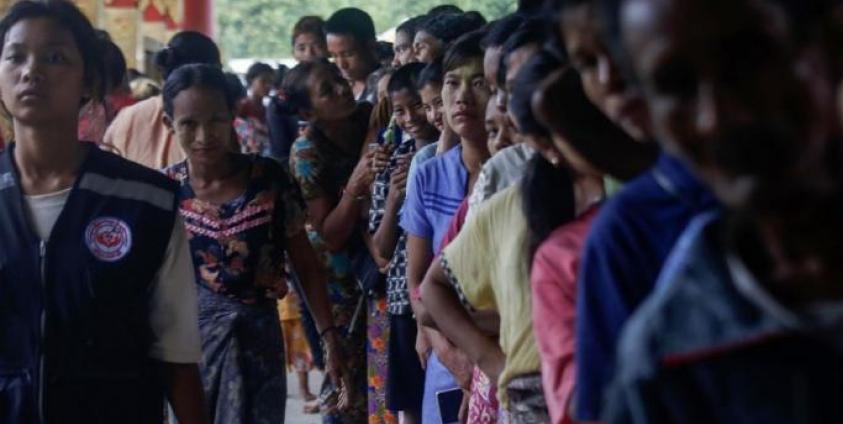Cyclone Mocha has evaporated leaving behind devastation and a population in need in Myanmar.
What this means is the military junta can use this vacuum to their advantage.
On the one hand, the junta authorities can hand out aid to people in need, or allow third parties to do so, supporting communities they favour, such as in the city of Sittwe or the surrounding areas, building dependence on the regime to some extent.
And on the other hand, the junta can block the distribution of aid to “troublesome” areas, such as Sagaing, and the Chin and Kachin states, particularly to communities who by choice or default back the Spring Revolution resistance.
Aid, therefore, can be used as a weapon of war.
In the wake of the horrific Cyclone Nargis in 2008, the then-military regime stumbled in their humanitarian response but their action – or lack of action - was to some extent governed by xenophobia, and ethnic and religious politics. This time round, in the wake of the less damaging Cyclone Mocha, the current military junta are to some extent repeating this behaviour, using the humanitarian crisis to their advantage.
Think about it. The Myanmar generals live in luxury in their ivory tower in Naypyidaw, divorced from the wreckage of people’s lives across a swathe of their country hit by the storm. Yet, despite their bluster, they are frightened that their usurping of power since 2021 is not going to plan. It’s going badly wrong. Hence, these throne-holders will use any excuse or opportunity to attempt to twist circumstances in their favour, whether by using aid as a tool, or bragging in a pro-junta newspaper Op-Ed just published that: “Mocha practically shows who is the real government in the country”.
For the junta, Cyclone Mocha is a perfect vehicle, a natural disaster twisted to benefit the junta agenda.
Two junta objectives stand out. Firstly, the cyclone swept across resistance strongholds in the middle of the country, damaging and flooding villages and further denigrating areas caught up in the destruction of war. So, the junta will block aid going to these areas. Secondly, the junta has not ended its war against the Muslim Rohingya. What is clear is the last remaining Rohingya in Rakhine State, numbering 600,000 and a large proportion living in IDP camps, will be last on the list when it comes to humanitarian aid.
Speaking this week at a UN Security Council meeting in New York, Women’s Peace Network advocate Wai Wai Nu highlighted the vulnerability of the Rohingya community – torn between those still residing in Rakhine and those in Bangladesh refugee camps. Here the relentless campaign against these “unrecognized” people by the Myanmar military – ongoing over the decades – continues to play out with the community now pressed post-cyclone by thirst and starvation.
The Myanmar generals will pretend to help, with “photo opportunities” as seen over the last week, and a superficial level of dialogue that will lead to some international aid being allowed in, but there will be blockage of humanitarian supplies to communities not favoured by the junta.
As Wai Wai Nu told the UN, aid should be freely distributed to communities in need, and the control should not be left to the whims of the generals, in essence the same generals, she points out, who oversaw the Cyclone Nargis aid debacle.








